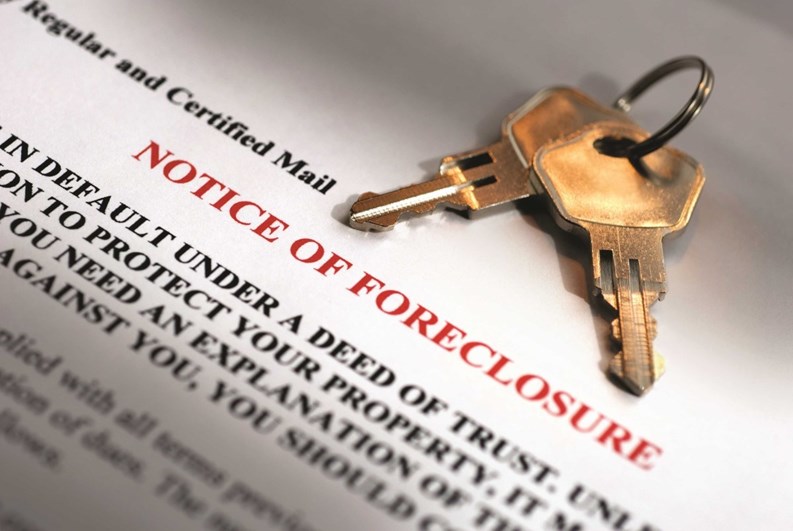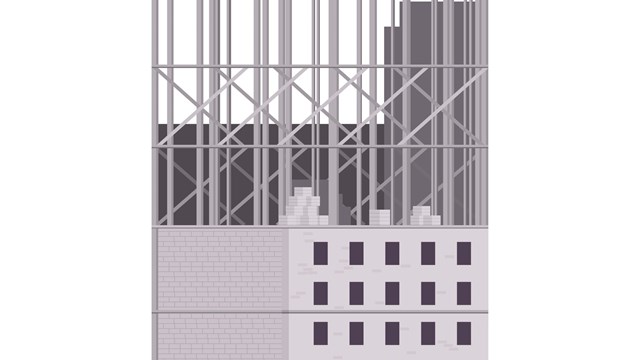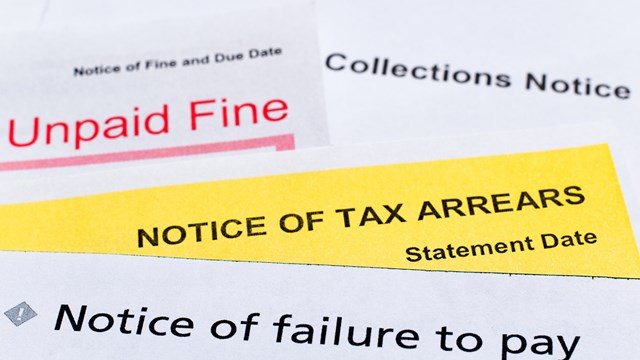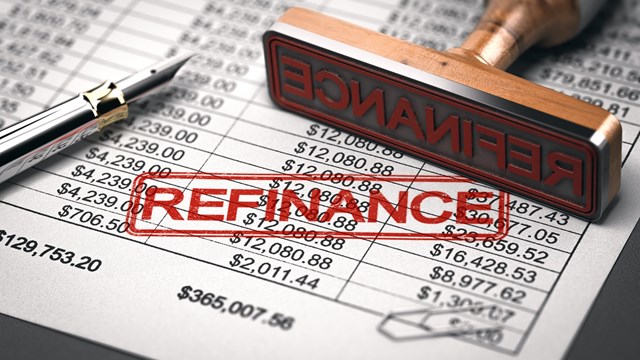Voting is an important right that hopefully all Americans exercise, but once your elected officials hit office, that doesn’t mean that you should just sit back and wait until the next Election Day to care.
There is a tremendous amount of major legislation set to impact condo owners and multifamily dwellers working its way through the halls of government, and it's wise for any HOA or building administrator to stay abreast of what’s happening and voice their concerns to elected officials.
Less is More
“The political atmosphere today is not conducive to measures that increase government’s role in common interest housing,”says Ronald L. Perl, an attorney with the law firm of Hill Wallack LLP in Princeton. “The trend is to cut government spending, so proposed legislation that creates new responsibilities or roles for government that need to be funded have a difficult time. One of the difficulties presented for any proposed legislation is a reluctance to create new government boards to supervise.”
A look at some of the bills making their way around include new laws for board transparency and conduct; bedbug laws; and proposed legislation relating to Federal Housing Administration (FHA) regulations. In New Jersey, there are a number of organizations that are deeply involved in the legislative process advocating on behalf of condo owners; homeowners associations and those living in multifamily housing. Some of these organizations include the Community Associations Institute–New Jersey Chapter, (CAI-NJ) and the New Jersey Apartment Association (NJAA), among others.
“Because we represent community managers, business partners and unit owners, CAI-NJ strives to always represent all aspects of community association living, when we take a position on a piece of legislation,” says Curt Macysyn, executive vice president of CAI-NJ. “We often times weigh the cost against the projected benefit to communities, when taking a position on a bill. Also, community association law tends to be very specific in nature, and many times, legislators and bill drafters are not familiar with the nuances of this area of the law. The result can be initiatives that do not do what they purport to do and thus have unintended consequences to boards and communities.”
Currently the CAI-NJ's Legislative Action Committee (LAC) is reviewing a number of bills affecting the governance and operations of community associations. For example, there are two bills that affect the voting rights within common interest communities. The bills are Senate Bill 2187, sponsored by Senator Jeff Van Drew (D-1, Cape May County) and Assembly Bill 2971 sponsored by Assemblywoman Charlotte Vandervalk (R-39, Bergen County).
“Also, we are concerned about a bill that would require registration and training for in-house security guards, sponsored by Senator Thomas Kean, Jr. (R-21, Essex, Morris, Somerset & Union Counties),” says Macysyn. “A bill that would impact the application of pesticides at recreational fields in community associations is sponsored by Assemblywoman Annette Quijano (D-20, Union County).”
On the Agenda
Of some concern are new laws for board transparency and conduct that could require big changes if passed.
“A bill was recently introduced by Senator Sean Kean (R-11, Monmouth County), Senate Bill 2798, which would prohibit conflicts of interest by governing board members or management companies of homeowners association,” Macysyn says. “Because of the way the bill was written, we are unsure about the actual impact of the legislation, and we are meeting with the sponsor to get clarity on a number of issues.”
Other important pieces of legislation are being discussed in Trenton as well:
Senate Bill 2777, (a.k.a, the “New Jersey Foreclosure Fairness Act,”) which was first introduced in the 2008-09 session, is aimed at imposing additional foreclosure notice requirements and amending the “Mortgage Stabilization and Relief Act.” Additionally, Assembly Bill 2493, the ”New Jersey Fair Debt Collection Practices Act,” which was also introduced in the last legislative session, seeks to eliminate abusive practices in the collection of consumer debts and promote fair debt collection, this bill would relate directly to the collection of maintenance and common fees.
According to Perl, CAI-NJ plans to have a manager licensing bill introduced soon.
“The bill will have an educational requirement, ethics code and enforcement mechanism,” Perl says. “With community association managers responsible for the management of millions of dollars of funds and property, there is certainly a need to ensure that those professionals are appropriately educated and regulated. This will require a professional board in state government. While much of the cost would be covered by licensing fees, there is still the need to set up and fund this board.”
Lori O’Mara-Van Driesen, director of public information for the New Jersey Office of Legislative Services, says that there are dozens of bills that people should be looking at and she points out that anyone can go to their website, www.njleg.state.nj.us/ legislativepub/ols.asp, to see updates on each piece of legislation.
Other bills to watch include A3482, which was first introduced in 2008-09, and amends the “Fair Housing Act” to permit a municipality to acquire and take advantage of property foreclosures in the municipality in order to provide affordable units; S2401, a 2008-09 bill which would require issuance of construction permits for the installation of wheelchair ramps on residential real property within 3 business days of application; and A430, a bill which would permit the master deed of a condominium to reflect proportional common and limited common elements interests of each owner as fractions.
Lender Requirements
Following the worst housing and financial crisis since the Great Depression, the federal government is undertaking sweeping changes to the mortgage finance system. These changes will determine who gets mortgages, for what type of home and in what type of community. Condominium projects now have to be approved by the Federal Housing Administration (FHA) in order for individual unit buyers to be eligible for mortgages subsidized by the FHA, and most banks, still reeling from the housing bubble burst, are taking their financing cues from the FHA regarding qualifications for mortgages. Late in 2009, the FHA announced that all previously certified projects would have to be re-certified. Spot loan approvals were discontinued as of February 2010.
Perl calls this “Topic A” at the moment as there is activity on both the FHA front and Federal Housing Finance Agency (FHFA).
“The largest immediate impact has been in the mortgage industry, where the federal government is seeking to recover from the collapse of the mortgage industry in 2008 and prevent its re-occurrence,” he says. “The Federal Housing Administration is revising its condominium guidelines in ways that will affect many associations.”
“This is meaningful because the percentage of FHA loans in the market has dramatically increased between 2007 and now,” he says. “In 2007, it was at 5 percent, with some estimates having it between 25 percent to 30 percent now.”
The impact of these changes will be profound and may have the potential to affect the value and viability of tens of thousands of homeowners and condominium associations. Industry professionals point out that one element of the federal response to the mortgage and housing crisis, is that regulators and legislators lack a basic and clear understanding of the principles that govern housing in community associations.
“We are seeing increased scrutiny in the way lenders view community associations because the viability of a mortgage is strongly dependent upon the upkeep and maintenance of the common property and elements, as well as an up-to-date reserve study and adequate monies in reserve,” Macysyn says.
There are new requirements by leading government lenders Fannie Mae and Freddie Mac that are impacting apartment buyers, development, and other multifamily-related operations throughout the state.
“CAI-NJ’s Mortgage Matters initiative is a comprehensive response to mortgage challenges at the federal level,” Macysyn says. “The common thread for Mortgage Matters is to ensure that potential homebuyers have access to affordable mortgage products and that the criteria used to determine eligibility for loans in community associations are realistic measures of an association’s financial health. As the rules being developed today will likely govern mortgages for the next several decades, the stakes could not be higher.”
Another issue regarding the federal overhaul of the mortgage system has to do with the drafting of regulations under the Dodd-Frank Wall Street Reform and Consumer Protection Act of 2010, named for U.S. Senator Christopher Dodd (D–Connecticut) and U.S. Representative Barney Frank (D-Massachusetts). Those regulations will provide the underwriting criteria for federally backed mortgages (which essentially means the entire mortgage market).
NJAA Has a Say
NJAA is dealing with two major issues this current legislative session, according to Conor Fennessy, NJAA’s vice president of government affairs. Assembly Bill 3835 clarifies enforcement responsibility of the state Housing Code concerning multiple dwellings from municipalities to the state under the “Hotel and Multiple Dwelling Law.” Meanwhile, Assembly Bill 1628 (first introduced in the 2008-09 session) looks to require submetering for water and sewer utility service in all new apartment buildings where the basic characteristic of the use is residential.
“Most apartment buildings have one big master meter that measures for the entire building,” Fennessy says. “We want to install meters in each apartment and bill folks for only what they use. We think it’s fairer to measure so if they conserve, they are rewarded.”
The potential savings of permitting water submetering will range from 15 to 39 percent and will conservatively exceed 2 billion gallons per year. If they get approval for mandatory submetering in new construction, the NJAA will then ask that existing buildings be retrofitted.
“A third of New Jersey’s population lives in rental housing. Most policymakers think of home ownership first, but we want to remind them that rental housing is an important part of the economy of the state,” Fennessy says. “Informing, educating and interfacing with policy makers is a key mission of the NJAA.”
UCIOA Update
The Uniform Common Interest Ownership Act (UCIOA), the long-standing bill of rights for co-op and condo owners continues to hit stumbling blocks in Trenton.
“UCIOA is such a massive, omnibus bill, that few people—including opponents of the bill—took the time to read and understand it,” says Perl, who was a member of the UCIOA Task Force. “Many of the public criticisms I heard about its contents were simply inaccurate.”
The UCIOA is not merely a bill of rights for owners in community associations, but it also acts as a modern enabling statute containing provisions including the manner in which these communities are established, transition from developer to homeowner control, governance details and much more.
The latest version of UCIOA, proposed for New Jersey by the Community Associations Institute, contains provisions to enhance homeowner protection; this bill has not yet passed.
“In an era in which short sound bites prevail, it is difficult to get legislators or the public to go through a massive bill to gain a full understanding of its contents,” Perl says. “Moreover, many of the bill’s benefits were technical, and best appreciated by those who practice in the field as attorneys, accountants or property managers.”
Regardless of where you and your neighbors and board members come down on any of the issues being introduced and debated in New Jersey over the next several legislative sessions, the important thing is to stay informed of what's afoot, both in Trenton and in your own municipality. Getting informed and being involved is the best way to make sure your investment—and your home—are protected and fairly governed, both this term and far into the future.
Keith Loria is a freelance reporter and a frequent contributor to The New Jersey Cooperator. Editorial Assistant David Chiu contributed to this article.







Comments
Leave a Comment